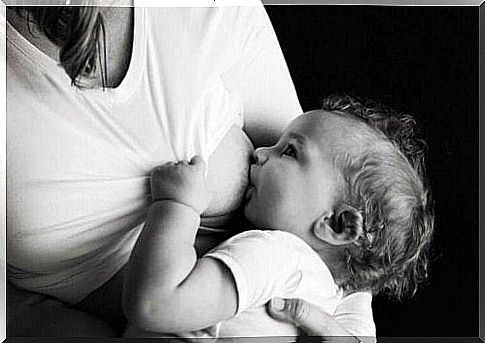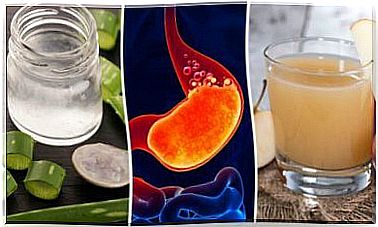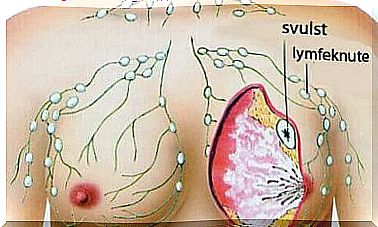Breastfeeding And The Immune System Of The Newborn

Breastfeeding is one of the healthiest ways to feed your baby. Numerous studies have shown that breast milk meets the nutritional needs of babies in the early stages of life. We should also note that breastfeeding is closely linked to the functioning of the newborn’s immune system.
Breast milk ensures proper development and growth. It can even determine the body’s defense mechanisms in later periods, and be a fundamental element in guaranteeing good health.
The composition of colostrum and breast milk
Breast milk not only contains macro- and micronutrients, but also concentrates immunoglobulins that are transferred to the baby.
Breastfeeding in the first months of life reduces the risk of developing allergies and autoimmune problems. This is due in part to the presence of these immunoglobulins. A study in the Annals of Nutrition & Metabolism reveals these findings.

Similarly, the first milk that comes from the breast after birth, known as colostrum, contains a large amount of these bioactive compounds with beneficial properties. And not only does it contain concentrated amounts of the elements we have already mentioned, but it is also possible to find high quality cytokines and polyunsaturated fatty acids.
The benefits of breastfeeding for the immune system of the newborn
The World Health Organization recommends exclusive breastfeeding for the first 6 months. This is partly due to the proven benefits for the baby’s immune system.
Breast-feeding may reduce the risk of autoimmune pathologies
As we have already mentioned, colostrum and breast milk may be able to reduce the incidence of autoimmune problems, such as allergies. There are several studies that support this.
Ensuring intake of this food during the first year of the baby’s life will reduce the likelihood of developing pathologies related to a malfunction in the defense system in later years.
Breastfeeding and the immune system of the newborn: Reduced incidence of infectious diseases
In addition, breastfeeding can lead to a reduction in the risk of death from pneumonia in the early stages of life. This is evidenced by research in the journal Minerva Pediatrica.
This feeding method increases the baby’s chances of survival and protects against the development of several chronic and complex pathologies in the medium term.

Optimal development of the immune system in premature infants
One of the main problems of premature babies is that they are born without optimal maturation of many of their systems. As a result, this can compromise the function of their physiology, thus producing inefficiencies that are conditioned by their state of health.
In these cases, breastfeeding becomes even more important. According to an article in Clinics in Perinatology , breast milk can improve the effectiveness of the immune system in premature infants. This in turn reduces the risk of developing autoimmune problems in the short term.
Up to what age is breastfeeding recommended?
This is a topic that generates a lot of debate. Experts say that mothers should offer breastfeeding at least the first year of life to experience all the benefits.
While it is true that supplemental foods can begin after 6 months of age, it is best to continue breastfeeding for another 6 months.
However, there are other specialists who are talking about expanding breastfeeding further. However, this is not always possible, mainly due to the discomfort that mothers may experience, dealing with breast tenderness or pain.
It is important to note that when replacing breast milk with a breast milk substitute, we should pay special attention to the content.
Many of the breast milk substitutes on the market have large amounts of simple sugars in the composition, which is harmful to the baby. In addition, it is important to ensure that the supply of unsaturated fatty acids is adequate.
Breastfeeding promotes the development of the newborn’s immune system
Breastfeeding is the key to ensuring the proper maturation of the newborn’s immune system. It significantly reduces the risk of developing allergies and asthma, including pathologies related to autoimmune problems.
At the same time, it increases the chance of survival and reduces the risk of developing severe pneumonia.
At the same time, it is important to note that breast milk is the most complete food for babies. It contains the highest quality proteins, unsaturated fatty acids, and all the vitamins the human body needs for efficient physiological processes.
It is true that there is disagreement about when to stop breastfeeding. However, almost all experts agree that this should not happen until after one year.









